

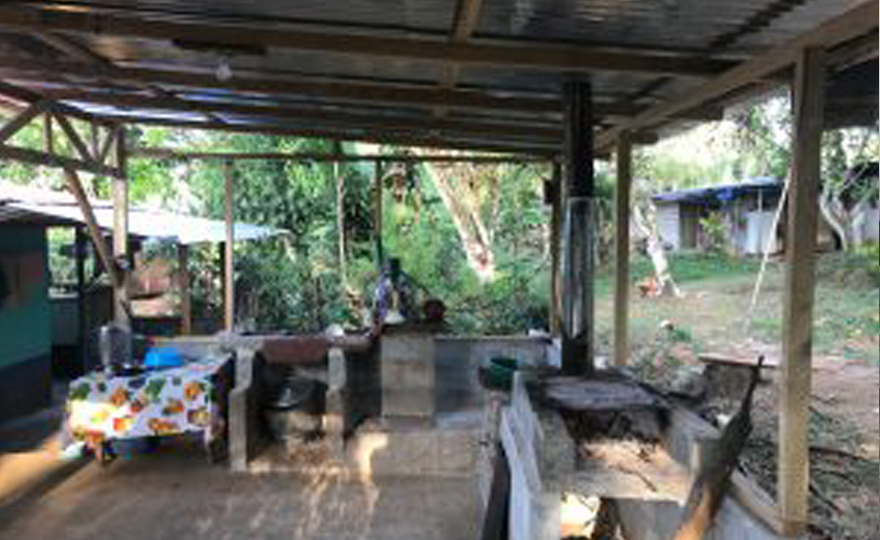
Longo Maï is a rural community in Costa Rica. The community was founded by Nicaraguan refugees in the 1980s, but is currently comprised mostly of Salvadorian refugees. Longo Maï is a commune, as the community functions in a self-sustaining way. Most of the food which the people eat is grown in Longo Maï, and each neighbor shares what they have with the other so that everyone has a variety of foods on their tables. I was very impressed as my host grandmother showed me the property around her house with plant after plant of edible foods; trees with pipas, limes, cacao, and more were only a few steps from her door.
I have visited Longo Maï twice so far during my semester in Costa Rica, once in January with my Valpo Cohort, and once in March with my group of fellow environmental students and the organization ICADS. During my time there, I learned from the community members about their way of life. The community members follow a life style of simple living in peace and harmony with people and with the earth. They admit that their way of life is counter-intuitive to the way the rest of the world lives, but it is a good way of living, and it seems to work very well.
During my January visit to Longo Maï I interviewed a number of individuals who were witnesses to violence during the war in El Salvador during the 1980s. Their experience has given them an exceptional abhorrence to violence which extends to an abhorrence of any amount of greed and/or spite for other people. They not only dislike war, they dislike the mentality of capitalism. This is because capitalism causes people to work against others or exploit others instead of working together and sharing. If everyone were to share what they had and live in harmony with others, there would be much less suffering in the world. The people of Longo Maï live in harmony with each other by sharing the food which grows in their yards so that everyone has plenty, and by sharing wisdom and knowledge about farming techniques so that everyone can produce their crops efficiently and well.
The people of Longo Maï live very simply. They do not live a consumerist life-style because they have everything they need right where they are in Longo Maï. On my second trip I spent some time on the farm of Wade More. He showed us his land and the way he grows his crops. As it turns out, the government makes it very hard for farmers like More to produce organically, trying to impose standards on them which they have found do not work for their specific farm. For example, in his vegetable garden Wade uses chicken manure as a fertilizer. He needed to use a different kind of fertilizer in order to obtain an organic license. But, when he switched, his vegetables did not grow. The farmers of Longo Maï know their land, and what works to make their crops grow. In this way they live in harmony with the land.
Wade also talked to us a lot about the concept of perceived needs. This is when a person believes they need something, or wants something, that they do not actually need. He said than many times people believe they need something even though they do not, especially in our western societies. Consuming more than we need is wasteful and harmful to the earth.
The people of Longo Maï invite tourists and visitors from Northern countries into their community so that we may have an opportunity to learn from them and gain a new perspective on our own lives. After my visit, I will remember to evaluate what I need versus what I think I need, consider where my food comes from, and remember that living peacefully with others is better for me and for the environment than living in contention.
I found Longo Maï to be a very neat and beautiful place. Please enjoy some of my favorite photos which I took in the community below.
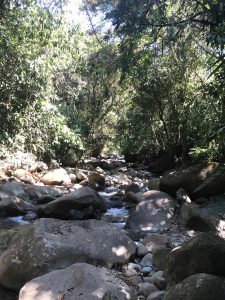
Just upstream from a popular swimming spot.
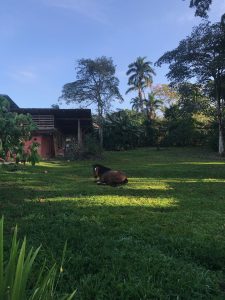
A horse in a yard near my host family’s house.
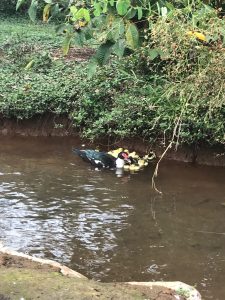
Baby ducks and their mother in a little stream near a foot path. (Ducks in Longo Maï do not mind people being near them very much.)
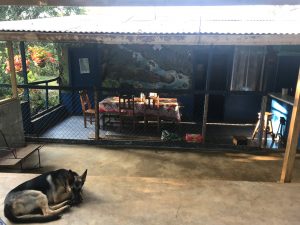
The porch at Edit’s house. (Edit is the woman who takes charge of organizing the tourist who come through Longo Maï.)
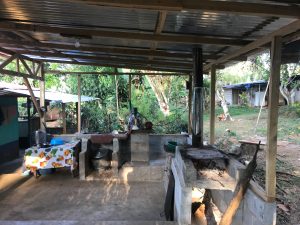
The wood burning stove Edit cooks tortillas on, in her house.